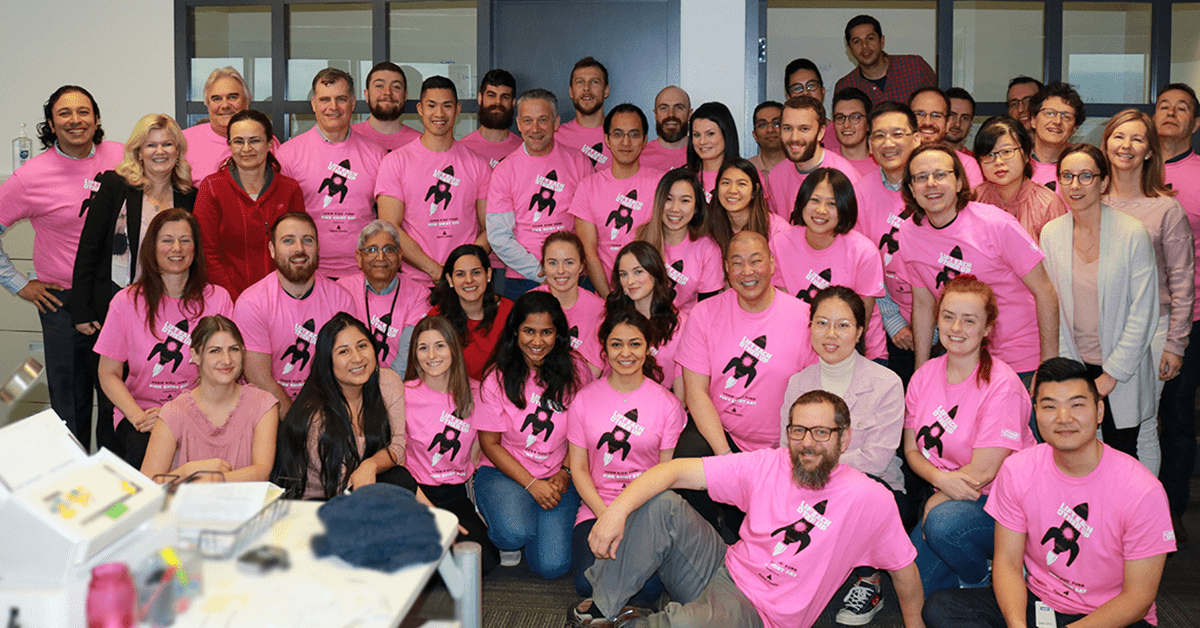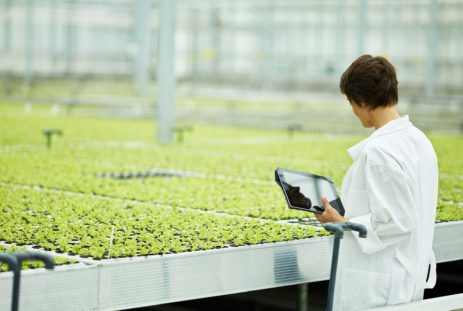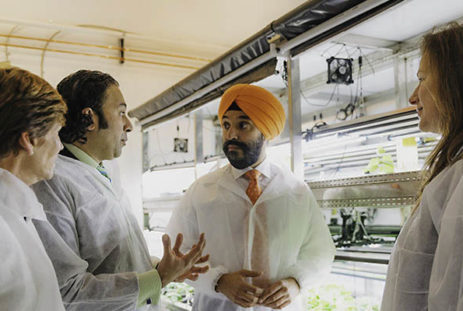
Predicting New COVID-19 Virus Strains
AN IMPACT STORY
Collaborating to predict COVID-19 virus variations before they emerge.
As part of the Digital Technology Supercluster’s $60-million COVID-19 Program, the founding member, Terramera, is collaborating with Microsoft, the University of British Columbia, Menten AI, ProMIS Neurosciences and D-Wave to predict COVID-19 virus variations before they emerge.
 While Terramera continues to reduce synthetic pesticide use with its Actigate™ technology, it is now using computational chemistry, machine learning, and artificial intelligence innovations to predict new virus strains and predesign medicines and therapies to prevent future pandemics. The project is called Protecting Canadians by Predicting the Evolution of COVID-19.
While Terramera continues to reduce synthetic pesticide use with its Actigate™ technology, it is now using computational chemistry, machine learning, and artificial intelligence innovations to predict new virus strains and predesign medicines and therapies to prevent future pandemics. The project is called Protecting Canadians by Predicting the Evolution of COVID-19.
“The Digital Technology Supercluster presents an enormous opportunity to harness complementary areas of science across industry and academia,” says Terramera CEO Karn Manhas. “By working together, we can help solve some of the world’s biggest problems, COVID-19 included, with predictive technologies.”
Since 2018, Terramera has nearly doubled its workforce and is slated to add up to 30 new employees in 2020. This growth, combined with its new partnerships, have allowed the company to pursue key genomics tech “much earlier than would have been possible otherwise, and in a more thorough way,” says Dr. Steve Slater, Vice-President of Strategic Initiatives. “The Digital Technology Supercluster has been instrumental in helping us form partnerships and expand the scope of our work. It has improved our access to top talent, great ideas, and world-class facilities.”
The Terramera-led Precision Agriculture to Improve Crop Health project, which launched in January 2020, is a prime example of the company’s impressive progress. Designed to prevent pests and protect crops while reducing pesticide use, the project is initially targeting wheat leaf rust, which threatens Canada’s $7 billion in annual wheat exports, before tackling other devastating diseases.


